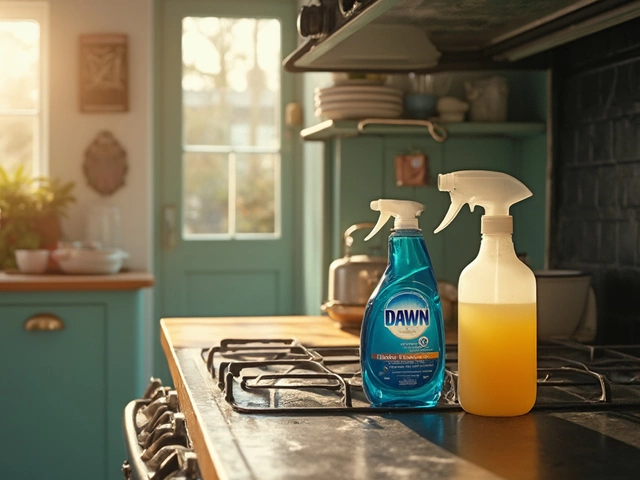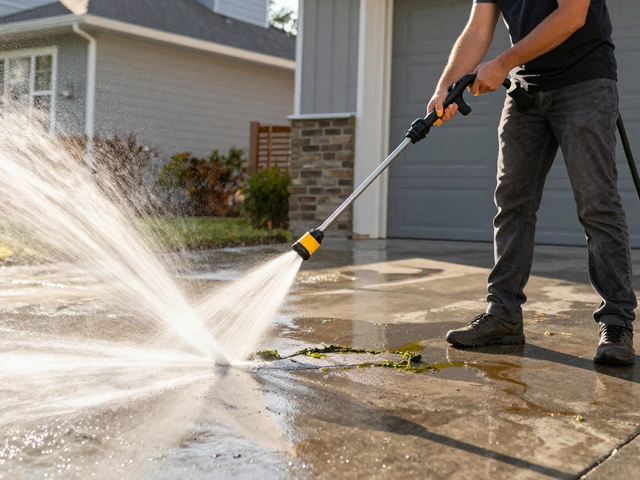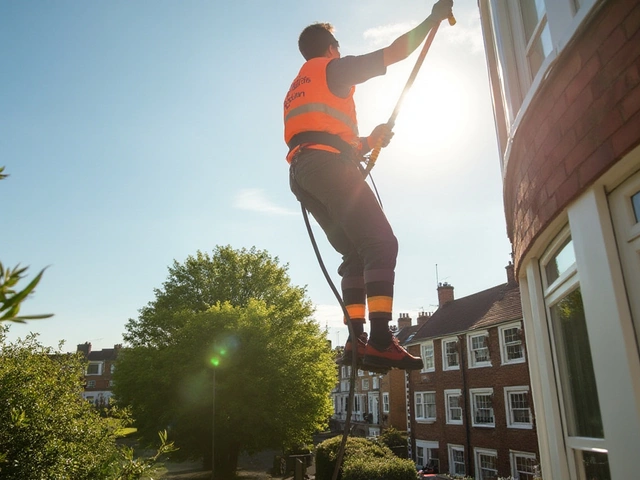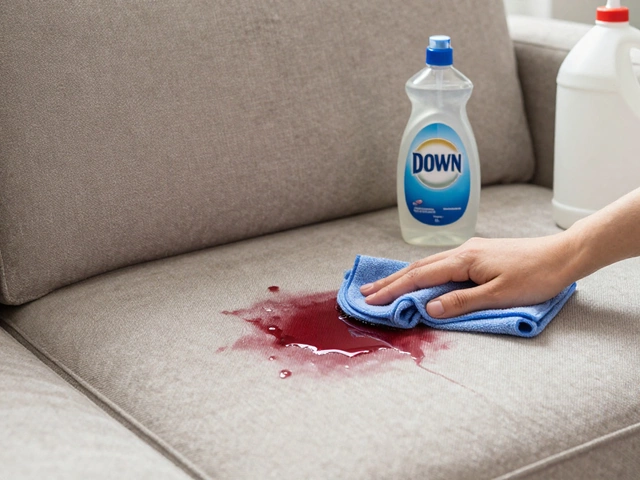Moving out of a place in California? You might wonder if your landlord can ding you for cleaning. Spoiler: yes, but only in certain situations. California law is strict about what a landlord can touch when it comes to your security deposit, especially for cleaning. This isn't a free pass for them to deduct money just because they feel like it, and you definitely don't have to pay to make your old apartment cleaner than when you moved in.
The main rule? You should leave the place about as clean as when you got it—no need to scrub it spotless. If you left big messes, trash, or caked-on grime, that’s fair game for a deduction. Dust on the windowsill or a few scuff marks? That’s considered normal and your landlord can’t charge for putting those back to perfect.
- When Cleaning Charges Are Allowed
- Normal Wear and Tear vs. Dirt
- Limits on Cleaning Deductions
- What Landlords Must Provide
- Tenant Rights and Common Disputes
- Tips to Avoid Losing Your Deposit
When Cleaning Charges Are Allowed
In California, a landlord can only charge you for cleaning when there’s clear proof you left your place dirtier than when you moved in. Don’t worry—this isn’t about tiny smudges or some dust bunnies behind the fridge. The law spells it out: cleaning charges must be “reasonable” and tied to the actual cost needed to get the unit to the cleanliness level it had at the start of your lease.
Here’s the basics: if you left sticky countertops, carpet stains, or a fridge full of leftovers, you can expect to see a cleaning charge against your security deposit. But if the place only shows minor signs of normal daily living, like faded paint or footprints in the entryway, that doesn’t count. California Civil Code 1950.5, where all these rules come from, is pretty clear—landlords can’t use cleaning charges as a loophole to upgrade the place or make it cleaner than when you got the keys.
So when exactly is a cleaning fee justified? Look at it like this:
- You left behind trash, personal items, or unreasonable messes.
- The oven is gross or the bathroom wasn’t cleaned at all.
- There are deep stains or “beyond normal” grime in carpets or on walls.
But if your landlord tries to charge for professional cleaning after you’ve left it at move-in condition, that’s pushing it. You only need to return your home to the same level of cleanliness it had when you arrived. That’s the main line renters have to remember about California cleaning charges: It’s about fairness, not perfection.
Normal Wear and Tear vs. Dirt
This is where a lot of renters get tripped up. In California, the rules make a clear distinction between what’s called "normal wear and tear" and actual dirt or damage. Here’s what that means for your wallet.
California law says landlords can’t keep your security deposit for normal wear and tear. But what counts? Think about stuff that happens just from living in a place, even if you do everything right:
- Carpet getting a bit worn or flattened in spots where people walk a lot
- Small scuffs on walls or baseboards
- Minor chips in paint from hanging a picture
- Sun-faded window coverings
- Gently used appliances that still work
None of these give your landlord the right to grab your money for cleaning or repairs. But actual dirt is a different story. If you leave:
- Grime in the oven or refrigerator
- Sticky floors or counters
- Bathroom mold that’s from lack of cleaning
- Trash left behind
- Pet stains or heavy odor
—those go beyond "normal living" and the landlord can charge you. Here’s a pro tip: If you’re not sure where the line is, ask yourself if the problem would still exist if you’d cleaned regularly while living there. Greasy kitchen splatters and caked soap scum usually mean you’re on the hook. A faded carpet doesn’t.
The state even has guidelines: Civil Code Section 1950.5 is the law to check if you want to see what’s allowed. And remember, landlords aren’t allowed to use your deposit just to make the place better than it was when you arrived—only to bring it back to that original level of clean. So if you got the keys to a place with dust in the corners, you don’t have to leave it sparkling. Snap photos when you move in and move out so you have proof if someone tries to hustle you for the wrong reasons.
Limits on Cleaning Deductions
Here's the part that trips up both renters and landlords: just how much can a landlord charge for cleaning after you move out? There's a clear limit. California law says a landlord can only deduct the “reasonable cost” needed to bring your place back to the level of cleanliness it was at move-in—no more.
Your security deposit isn’t a blank check. If your landlord hires professional cleaners, the bill they hand you can’t be padded with extra fees for deep cleaning, repairs, or services you never agreed to. They have to stick to actual, necessary costs. If you left a small stain or crumbs in the oven, you can’t be charged as if you left the place trashed.
What does “reasonable cost” look like? Think standard market rates. If the average cleaning company charges $200 for a two-bedroom, your landlord can’t just slap you with a $500 bill for the same service. Here’s a quick comparison of common cleaning deductions and what’s legit versus what’s over the line:
| Cleaning Task | Acceptable Deduction? | Typical Cost Range |
|---|---|---|
| Trash removal | Yes | $50 - $150 |
| Carpet shampoo (for obvious stains) | Yes | $100 - $200 |
| Deep cleaning whole unit | Only if left very dirty | $150 - $400 |
| Routine dusting/wiping | No | Included as normal wear |
| Repainting walls for minor scuffs | No | N/A (normal wear) |
Landlords have to break down the costs. By law, if they take anything from your deposit, you must get an itemized list of what each cleaning task cost and why it was needed. No lump sums, no vague “cleaning fee”—actual details. If you see something that looks inflated or unnecessary, you can challenge it. Some renters have even taken cleaning fee disputes to small claims court and come out on top.
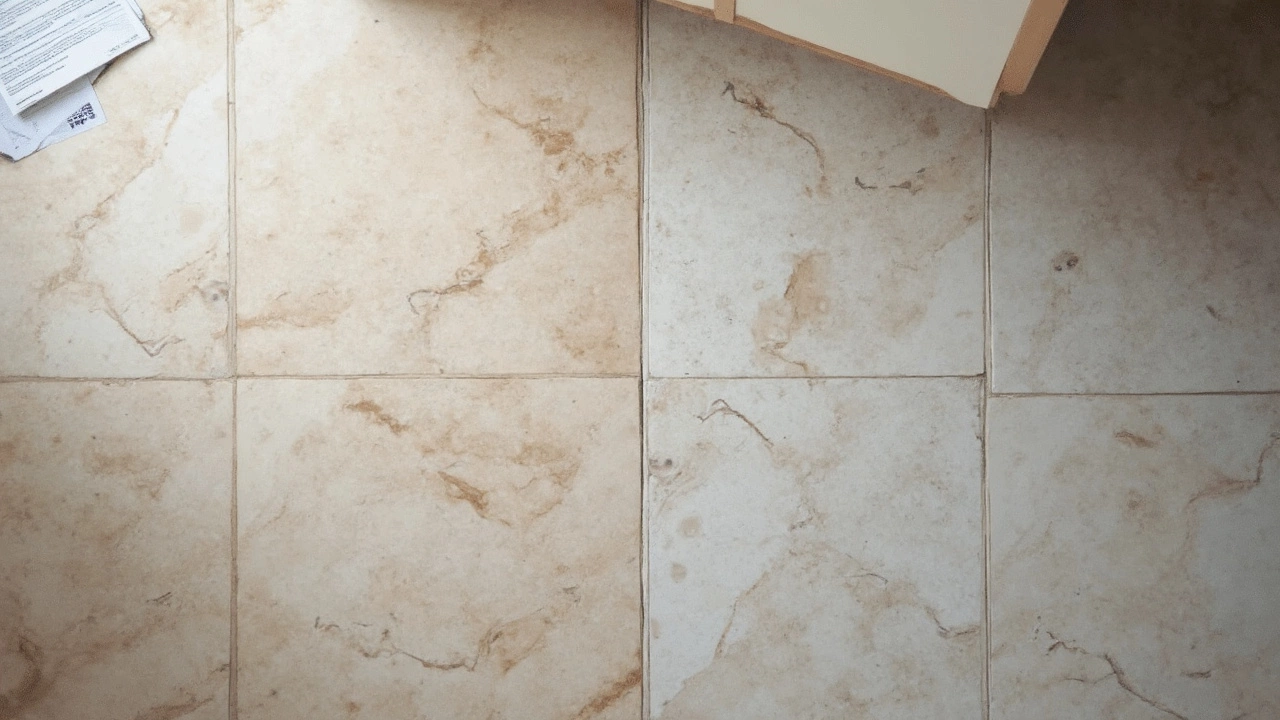
What Landlords Must Provide
If your landlord wants to take part of your deposit for cleaning, there’s a checklist they have to follow. California law says landlords can’t just keep your money and call it a day. They need to document everything if they plan to deduct for cleaning, or for any other reason.
First, your landlord must provide a written itemized statement. This list should break down exactly what was cleaned, how much each thing cost, and why they think it was your responsibility. If they hired a crew, you should see the name of the cleaning company and the date it was done. You also have the right to see receipts or invoices for any cleaning services that cost more than $125.
Here’s what you’re legally entitled to if the landlord wants to charge you for cleaning:
- An itemized, written invoice or statement for all deductions
- Receipts or proof for any cleaning or repair costing over $125
- Your remaining deposit (if any) returned to you within 21 days after you move out
- Contact info for any vendors used for the cleaning
This process actually comes from California Civil Code §1950.5. The idea is to prevent landlords from just guessing at charges or making stuff up. They need real documentation that matches the amount they’re holding back. If they DIY the cleaning and don’t use a company, expect a written explanation of the hours and hourly rate used for the work.
| Requirement | Details |
|---|---|
| Itemized Statement | Breakdown of cleaning work and cost |
| Receipts/Invoices | Must show for items over $125 |
| Deadline | All info and remainder of deposit must be sent within 21 days |
If your landlord skips any of this, you could have a strong case to demand your full deposit back. And with California laws on your side, you’ve got leverage most renters in other states can only dream about.
Tenant Rights and Common Disputes
In California, renters have pretty solid protections when it comes to cleaning charges. If your landlord decides to keep part of your deposit for cleaning, they must show a detailed, written list of what they cleaned and the cost for each item. By law, this breakdown must come within 21 days after you move out. On top of that, if any single cleaning deduction is over $125, landlords need to give you copies of the actual cleaning receipts.
Here’s the kicker—landlords can’t legally charge you for what’s called “normal wear and tear.” That’s the small stuff like faded paint, a little dust, or gently worn carpet. If they do charge for these, you can challenge the deduction. Disputes often pop up when landlords claim they needed to deep clean the whole unit, but the only issue was a bit of soap scum or some crumbs in the fridge.
- If you think charges aren’t fair, speak up quickly. Write a letter explaining why you disagree, and keep copies of everything.
- Took thorough photos when you moved in and right before you left? That’s your best defense if things get messy with your deposit.
- Still can’t agree? Small claims court is common for these landlord-tenant headaches. You don’t need a lawyer—just evidence like the move-in checklist, photos, and your lease.
One important thing: you’re not on the hook to clean a place up to “hotel standards.” The law expects you to hand it back in the same general condition you got it, not sparkling like new. Knowing your California rights here can save you hundreds of bucks and a lot of stress when you move out.
Tips to Avoid Losing Your Deposit
You worked hard for that deposit, so don’t let it slip away over cleaning charges you could’ve dodged. California law gives you more say than you might think. With a few smart moves, you can cut off cleaning deductions before they happen.
- Document everything at move-in and move-out. Take photos or videos of the apartment when you first walk in. Do it again right before you leave. Keep them somewhere safe. If your landlord tries to charge you for something that was already there, your proof shuts that down fast.
- Ask for a pre-move-out inspection. In California, you have the right to request one (Civil Code § 1950.5). Your landlord must walk through with you, point out potential cleaning issues, and give you a chance to fix them before move-out.
- Tackle the actual cleaning yourself or hire help. Focus on kitchens, bathrooms, floors, and trash. Go for “reasonably clean”—no need to steam-clean carpets (unless you trashed them) or repaint walls unless they’re damaged.
- Get everything in writing. When you turn in keys or finish cleaning repairs, email your landlord or have them sign off that you left things in good condition.
- Save receipts. If you paid for professional cleaning, keep that invoice. If the landlord tries to deduct for the same thing, you’re covered.
Here’s what usually triggers cleaning charges versus what’s just everyday living:
| Cleaning Charge (Deductible) | Normal Wear (Not Deductible) |
|---|---|
| Grease caked on stove | Light scuffs on floor |
| Trash or food left behind | Faded paint |
| Mildew buildup in shower | Carpet wear from furniture |
Your landlord has 21 days to give you an itemized list of any deductions from your security deposit in California, along with receipts for any cleaning over $125. If they don’t follow these rules, you might be owed your full deposit—plus extra, according to state law. Knowing your rights and keeping a paper trail is your best bet for walking away with your money intact.
